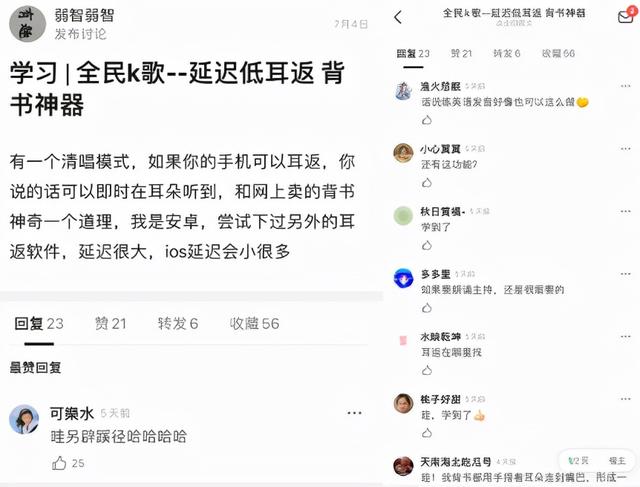
语言的本质是描述生活和表达情感,每个人的生活经历不尽相同,那么同一个词对于不同的人来说,可能意味着略微不同的色彩或者意境。
上学的时候,对于同义词,老师一般大致用中文解释用于不同的语境,我想大家都遇到过同样的遭遇。举个例子,高中的时候遇到三个词:people、person、human,老师一般这么解释:
敲黑板,大家注意了。
People是复数名词,不能说a people,也不能说peoples,表示一群人或一类人。
Person是可数名词,是指单个人。
Human也是可数名词,表示人类。
这样的解释,只单单解释了字面意思,词语适用的语境、词语是什么色彩、专用用法统统没讲。大家坐在下面大眼对小眼,估计还是糊里糊涂的。尤其在课本中human是以human being词组形式出现的,全班都以为human只能这么用。
那么用英英词典能带来什么好处呢?下面以柯林斯高阶英英词典对这几个词的解释为例讲讲好在哪里。
people
1. People are men, women, and children. People is normally used as the plural of person, instead of ‘persons’.
表示person的复数形式
2. The people is sometimes used to refer to ordinary men and women, in contrast to the government or the upper classes.
people前面加the → “the people”用来表示普通人,区别于政府和权贵阶层
3. A people is all the men, women, and children of a particular country or race.
people单独使用还表示特定国家或者种族的所有人,比如Chinese people,rural people。
4. [VB: usu passive] If a place or country is peopled by a particular group of people, that group of people live there.
动词,常用作被动(passive)peopled,表示sb.居住于some place,释义句也就是用法例句:some place be peopled by sb.
5. [V] If something such as a story or a time in history is peopled with people of a particular kind, those people occur or exist in it. (LITERARY)
动词,圆括号中注解通常为文学上的表达,意思是某类人出现在或存在于历史上某个故事/某个时代,释义即为用法:be peopled with。词典给出了例句:
Grass's novels are peopled with outlandish characters。→Grass的小说总出现古怪的人物。
person
柯林斯英英词典首先给出作为合成词的作用:
1. -person is added to numbers to form adjectives which indicate how many people are involved in something or can use something. People is not used in this way.
Person用连接符与数字连接,用来表示“几人”。
2. -person is added to nouns to form nouns which refer to someone who does a particular job or is in a particular group. -person is used by people who do not want to use a term which indicates whether someone is a man or a woman. –people can also be used in this way.
为了避免点名某人的性别,用person取代合成词中的man或者woman,比如不想提及主席的性别,可称为chairperson,同样的还有salesperson,如果要表示复数,可用salespeople。
柯林斯词典给出的词义解释:
首先每个解释之前都写了:
“The usual word for ‘more than one person’ is people. The form persons is used as the plural in formal or legal language”。
People是person的通用复数形式;persons是正式和法律语言中的复数形式。
这下对people和persons的用法有了清楚的了解。原来一个是非正式的,一个是正式的、用于法律语言的。
以下为词典对person的解释:
1. A person is a man, woman, or child.
不解释
2. Persons is used as the plural of person in formal, legal, and technical writing.
Persons在正式、法律、技术写作中用作person的复数。
3. If you talk about someone as a person, you are considering them from the point of view of their real nature.
固定用法:as a person → 作为人。
例句:Robin didn't feel good about herself as a person。 → 罗宾对自己的感觉并不好。
4. If someone says, for example, ‘I'm an outdoor person’or ‘I'm not a coffee person’, they are saying whether or not they like that particular activity or thing. (mainly SPOKEN)
固定用法:I’m (not) a … person. → 我是…的人。比如I'm not a coffee person→我不喝咖啡。
5. If you do something in person, you do it yourself rather than letting someone else do it for you.
do sth. in person表示亲自做某事。
例句:She went to New York to receive the award in person. → 她亲自去纽约领奖。
6. If you meet, hear, or see someone in person, you are in the same place as them, rather than, for example, speaking to them on the telephone, writing to them, or seeing them on television.
See someone in person表示亲眼看到某人。
例句:She wanted to hear him sing in person. → 她想亲耳听他唱歌。
7. Your person is your body. (FORMAL)
Person指个人身体。(正式用语)
例句:The suspect had refused to give any details of his identity and had carried no documents on his person. → 嫌犯拒绝透露他的身份,身上未带任何文件。
8. You can use in the person of when mentioning the name of someone you have just referred to in a more general or indirect way. (WRITTEN)
in the person of用在书面语中,是引出描述对象的一种间接词组搭配。
例句:We had a knowledgeable guide in the person of George Adams. → 我们有一位见识广博的导游乔治·亚当斯。
9. In grammar, we use the term first person when referring to `I' and `we', second person when referring to `you', and third person when referring to `he', `she', `it', `they', and all other noun groups. Person is also used like this when referring to the verb forms that go with these pronouns and noun groups.
在语法中person用来表示第几人称,比如第一人称叫“first person”,第二人称叫“second person”,第三人称叫“third person”。
human
1. [adj.] Human means relating to or concerning people.
Human是形容词:人的。
2. [n] You can refer to people as humans, especially when you are comparing them with animals or machines.
把人与动物或机器做比较的时候,使用humans称呼人类。
3. [adj.] Human feelings, weaknesses, or errors are ones that are typical of humans rather than machines.
Human特指人类的、人性的(相比机器而言),比如human feelings, weaknesses, or errors特指人类情感、人性弱点和人因错误。尤其human error这个词,在工程管理常见到。所以知识面广对于英语的学习也是一个帮助。
汇总
通读下来,基本理解了people、person、human的区别了:
people表示一群人、一类人;person表示个人,尤其用在正式文法、法律文本、技术写法中;human表示人类(的)、人性(的)(相对于机器而言)。
这个总结好像跟本文开头提到的英语老师的说法差不多,但是通过读词典已清晰明白个中用法。
话说回来也不能怪当年老师没在课堂上带着大家读词典,因为阅读词典需要有一定的语言基础。既然现在已经具备了语言基础,就不能再死记硬背了。
总结
总结一下英英词典的好处:
1. 阅读英文释义句,增加自己的英语语感。词典是最严谨最官方的工具书,几乎没有废话,比英文课本还要正式,读词典等于读经典。
2. 阅读英文解释有助于学习者在英文环境中理解英文。英汉词典解释中文与英文互相切换,及其容易让学习者大脑一会是汉语思维,一会是英文思维,容易混乱。
3. 英文释义通过句子的形式表达出来,阅读句子,直接明白这个词的意思、用法、同义词,连例句都省去了。
比如people的第4个解释,如果要用中文表达要用4句:
意思:(某类人)居住于(某国家、某地方)
用法:be peopled by
例句:balabala…
同义词:live
在看看英文释义,一句话搞定:
If a place or country is peopled by a particular group of people, that group of people live there.
4. 查英英词典还可增加词汇量。(⊙o⊙)
本文只是举一个例子,说明英英词典是辨析近义词的首选。希望能帮到英语学习者。
有心的人可以查一组近义词体验一下英英词典,比如clothes、garment、finery,都表示衣服、服装,有什么区别呢?
,










